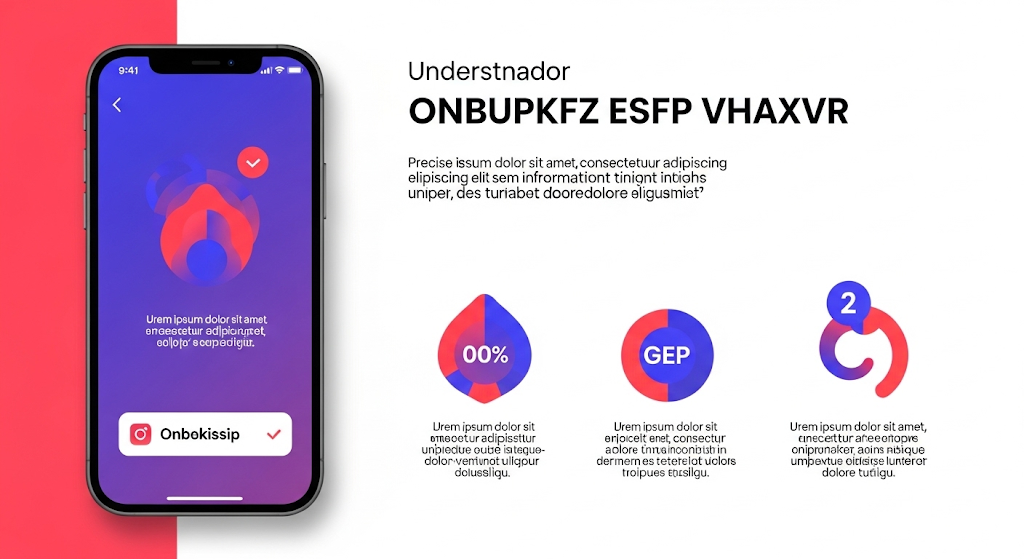Introduction
The term ONBUPKFZ ESFP VHAXVR may seem complex at first glance, but it holds significant meaning in personality analysis and behavioral psychology. This guide will break down its components, explore its implications, and provide insights into how it influences personal and professional life.
Whether you’re new to personality typology or looking to deepen your understanding, this article will help you grasp the essence of ONBUPKFZ ESFP VHAXVR in an engaging and informative way.
What is ONBUPKFZ ESFP VHAXVR?
To understand ONBUPKFZ ESFP VHAXVR, we must first dissect its components:
-
ONBUPKFZ – This appears to be a coded or placeholder term, possibly representing a unique identifier in personality assessments.
-
ESFP – A well-known personality type from the Myers-Briggs Type Indicator (MBTI), representing Extraverted, Sensing, Feeling, and Perceiving traits.
-
VHAXVR – Another coded term, potentially indicating a subtype or variation within the ESFP framework.
For the purpose of this article, we will focus primarily on the ESFP personality type, as it is the most recognizable and widely studied component.
The ESFP Personality Type: An Overview
ESFPs, often called “The Entertainer” or “The Performer,” are vibrant, energetic, and spontaneous individuals. They thrive in social settings, love new experiences, and have a natural ability to uplift those around them.
Key Characteristics of ESFP
-
Sensing (S) – They focus on the present moment, relying on tangible experiences rather than abstract theories.
-
Feeling (F) – They make decisions based on emotions and personal values rather than pure logic.
Strengths of the ESFP Personality
1. Charismatic and Engaging
ESFPs have a magnetic personality that attracts people. Their enthusiasm and warmth make them excellent communicators.
2. Adaptable and Spontaneous
They thrive in dynamic environments and can quickly adjust to unexpected changes.
3. Empathetic and Supportive
Their strong emotional intelligence allows them to connect deeply with others, offering comfort and encouragement.
4. Practical Problem-Solvers
Since they focus on the “here and now,” ESFPs excel at finding immediate, real-world solutions.
Challenges Faced by ESFPs
Despite their strengths, ESFPs may encounter certain difficulties:
1. Difficulty with Long-Term Planning
Their spontaneous nature can make it hard to stick to long-term goals or structured routines.
2. Sensitivity to Criticism
Because they value harmony, harsh feedback can deeply affect them.
3. Impulsiveness
Their love for excitement may lead to risky decisions without considering consequences.
4. Struggles with Abstract Thinking
They prefer concrete information over theoretical concepts, which can limit their interest in highly analytical fields.
ESFPs in Relationships
ESFPs are passionate and affectionate partners who bring excitement to relationships.
Romantic Relationships
-
They are expressive and enjoy grand romantic gestures.
-
They seek partners who appreciate spontaneity and adventure.
-
They may struggle with conflict avoidance, preferring to keep things light-hearted.
Friendships
-
They are the life of the party, always organizing gatherings.
-
Loyal and supportive, they stand by friends in tough times.
-
They may become frustrated with overly serious or rigid friends.
Family Dynamics
-
They bring fun and energy to family life.
-
They may clash with highly structured or traditional family members.
ESFPs in the Workplace
ESFPs excel in careers that allow creativity, social interaction, and hands-on work.
Best Career Paths for ESFPs
-
Entertainment & Performing Arts (Actors, Musicians, Hosts)
-
Hospitality & Tourism (Event Planners, Hotel Managers)
-
Sales & Marketing (Brand Ambassadors, PR Specialists)
-
Healthcare & Social Work (Nurses, Counselors, Therapists)
Workplace Strengths
-
Excellent team players who boost morale.
-
Quick thinkers who handle crises effectively.
-
Natural negotiators who build strong client relationships.
Potential Workplace Struggles
-
May dislike repetitive or highly administrative tasks.
-
Can become restless in overly rigid corporate environments.
-
May prioritize fun over deadlines if not properly motivated.
Personal Growth Tips for ESFPs
To maximize their potential, ESFPs can focus on:
1. Developing Long-Term Discipline
-
Setting small, achievable goals can help build consistency.
2. Embracing Constructive Feedback
-
Learning to separate criticism from self-worth enhances resilience.
3. Balancing Spontaneity with Responsibility
-
Creating a flexible but structured routine can prevent impulsiveness.
4. Exploring Abstract Thinking
-
Engaging in strategic games or reading philosophy can broaden perspectives.
Famous ESFP Personalities
Many well-known figures embody the ESFP traits.
Conclusion: Embracing the ESFP VHAXVR Personality
Understanding ONBUPKFZ ESFP VHAXVR—particularly the ESFP component—provides valuable insights into human behavior. ESFPs are dynamic, compassionate, and full of life, making them invaluable in social and professional settings.
By recognizing their strengths and addressing their challenges, ESFPs can lead fulfilling lives while inspiring those around them. Whether you’re an ESFP or know someone who is, appreciating this personality type fosters better relationships and personal growth.

